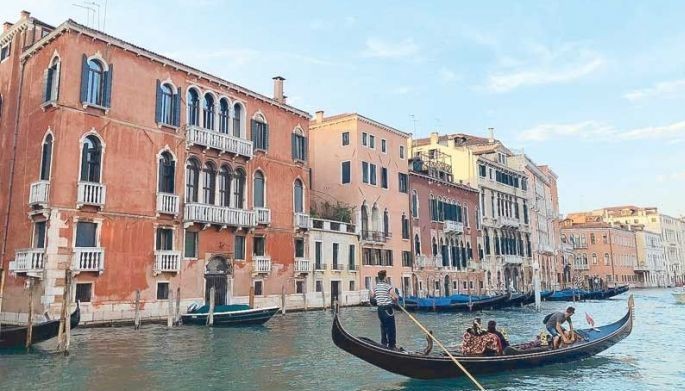Victory Liner: Serving its corner of the world
MANILA, Philippines - Humble beginnings should not deter great ambitions. Present in key North Luzon areas, Victory Liner has left an indelible mark in the ground transportation industry since it began its journey 66 years ago.
Providing travelers a safe, comfortable, hassle and stress-free journey, the name Victory Liner is a Filipino icon, a trendsetter that has reached out to thousands of communities through its daily travels.
When the first Victory Liner bus rolled out, its objective was simple — to move people better and safer. From Manila to Zambales, Pangasinan, Baguio and Cagayan Valley, the voyage of Victory Liner has evolved.
As one of the country’s largest and most trusted bus companies, Victory Liner has spread its wings to scale new heights, aiming to make a difference not only in the roads it traveled but also in the lives of the communities it touches.
For 14 years now, the Doña Marta T. Hernandez (DMTH) Foundation, the humanitarian arm of Victory Liner, has created ripples of change through the North Luzon communities it serves.
In her lifetime, Hernandez was a firm believer on the value of education, granting scholarship programs to deserving individuals in various religious organizations and movements.
 All smiles and ready to help: Volunteers of the DMTH Foundation at a medical and dental mission.
All smiles and ready to help: Volunteers of the DMTH Foundation at a medical and dental mission. After her death, the Hernandez family remained committed to her philanthropic works and, recognizing the growing needs of vulnerable populations, decided to take on a bigger role.
“Aside from the scholarship programs, the foundation also conducts medical and dental missions, environmental activities like tree planting and school cleanup,” says Vernie Abede, a Hernandez granddaughter who also serves as the foundation’s president.
In its first foray into service, the DMTH Foundation centered on education, providing scholarship programs to members of religious congregations and children of Victory Liner employees.
As it carved a niche in community service, the foundation took small steps that would not only scale up efforts to help communities but also facilitate an engaged society, starting from the Victory Liner family.
For instance, to help fund the foundation, members of the Hernandez family started an ukay-ukay drive. “It was fun to see members of the family sorting out clothes, books and other items for the ukay-ukay activity,” recalls Cindy Hernandez, an active family member of the foundation.
Held at the Victory Liner terminal in Caloocan, the ukay-ukay activity proved to be a hit, patronized not only by the employees and people in the neighborhood but also by the heirs of the Hernandez family.
“We strive to engage everyone in the value of generosity so even our kids, nephews, nieces, and grandchildren are socially aware. During our ‘Ondoy’ relief operations, you can see five-year-old family members packing bags,” Abcede adds.
 Volunteers of the DMTH Foundation help clean up classrooms in time for the school opening.
Volunteers of the DMTH Foundation help clean up classrooms in time for the school opening. In parties with various orphanages and communities that the foundation supports, younger members of the Hernandez family do sing and dance presentations for these kids.
Fresh on the heels of the fund-raising project, the DMTH Foundation was able to start programs that help address some of the basic needs of communities — food, health and education.
Some of the projects included feeding programs and medical, optical and dental missions in Laguna, Olongapo, Pangasinan, Antipolo, Bataan, Zambales, Manila and Tarlac. The foundation has also distributed school kits in Bulacan, Pangasinan and other places.
As the global economic recession continues to cast a shadow, the DMTH Foundation also embarked on activities that promote self-sustainability. Livelihood training programs in soap making, sewing and food making were also initiated by the foundation.
Partnerships with other organizations have helped accelerate the attainment of the foundation’s programs and activities.
Recently, the DMTH scaled up its coverage with the “Lakbay Buhay Kalusugan” caravan. The project, launched in cooperation with the Department of Health and other institutions, saw the transformation of a Victory Liner bus into a mobile clinic.
The health caravan, which had its first “stop” in Capas, Tarlac, aims to promote maternal and child care among underprivileged families in far-flung areas around the country.
“Our participation in Lakbay Buhay Kalusugan widened our reach to the Visayas and Mindanao,” Abcede says.
The efforts of the DMTH Foundation are supported not by the Hernandez family but also by Victory Liner employees, who willingly join the foundation’s missions and other activities. “Sometimes, the employees themselves give us leads on where to do our next project,” Abcede says.
While much of the world is waiting for governments to solve the growing problems of society, Abcede, Hernandez and the rest of the DMTH Foundation believe that as long there is a knock for help, the Dona Marta T. Hernandez Foundation is always open to give assistance. As Paul’s challenge to the churches say, “whenever we have the opportunity, we should do good to everyone” (Galatians 6:10).
Victory Liner remains to be the country’s most preferred companion in trips to North Luzon. Always an innovator, it continues to enhance the safety and comfort of passengers with value-added services like online ticketing system and free Wi-Fi services (for Baguio trips). For inquiries, visit www.victoryliner.com.



















